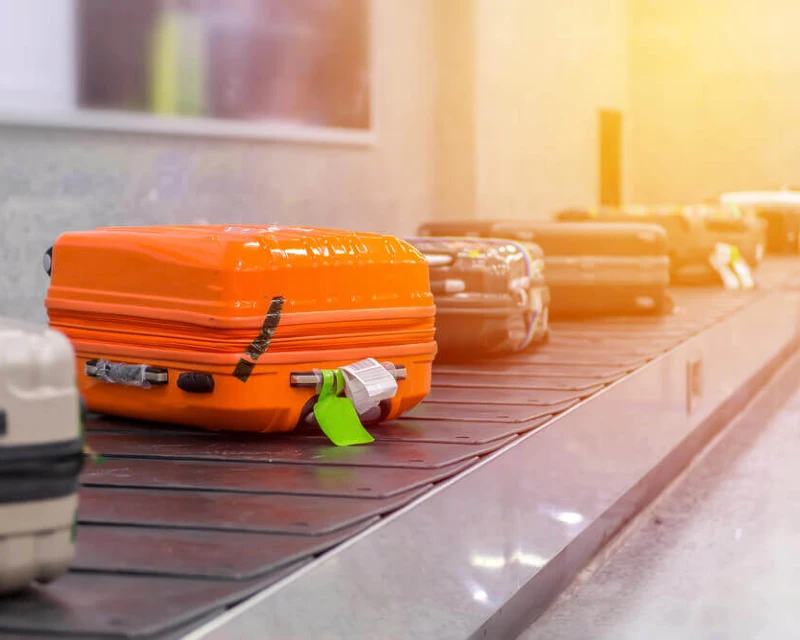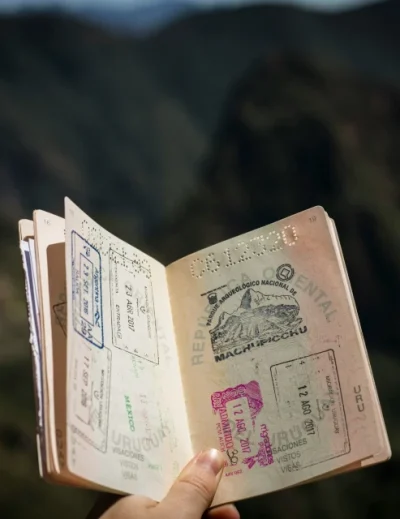
Prohibited items you shouldn’t pack for international travel
Did you know that chewing gum is banned in Singapore? Or that cold medications containing pseudoephedrine are prohibited in Japan? Countries have regulations like this in place to protect public health, safety, agriculture, and their ecosystems. Bringing prohibited items into a country can result in fines or even detention. In this guide, we’ll cover common items that are often restricted or banned when traveling internationally.
Prohibited items in carry-on baggage
Liquids, gels, and aerosols (spray can)
Liquids, gels, and aerosols must be no more than 100 ml. However, there are some exceptions. Baby formula, breast milk, and medications may exceed this limit if you declare them.
Sharp objects
Knives, razors, and scissors with blades longer than 4 inches are not allowed in carry-on luggage. Small items like nail clippers, tweezers, and scissors under 4 inches are usually allowed. But you should check your airline’s specific rules.
Weapons and replicas
Firearms and ammunition are banned from carry-on bags, although some airlines may allow them in checked luggage if they’re properly declared and packed.
Other weapons, like stun guns and pepper spray, are also prohibited. Even toy or replica weapons, like fake grenades or toy guns, are not allowed to prevent confusion and safety risks.
Self-defense items
Brass knuckles, expandable batons, and martial arts tools are not permitted. In some cases, small personal alarms might be allowed, but you must check the specific airport or country rules.
Sporting equipment
Items like golf clubs and similar sports equipment cannot go in carry-on luggage. These items should be packed in checked baggage instead.
RELATED: First time travelling internationally? Avoid these mistakes
Prohibited Items in checked luggage
Explosives and fireworks
Items like fireworks, gunpowder, and other explosives are not allowed in checked or carry-on luggage due to fire risks.
Flammable liquids and solids
Gas, fuel, alcohol with over 70% volume, and some cleaning materials are prohibited.
Compressed gases
Compressed gases like propane, butane, and scuba tanks are not allowed. Small medical oxygen cylinders may be allowed if you have prior approval from the airline.
Lithium batteries
Lithium batteries with a capacity over 100 watt-hours are prohibited because of fire risks. This includes power banks. It’s better to pack these and electronics like your laptop in your carry-on luggage.
Self-heating products
Self-heating items are banned because they can activate during flight and create fire hazards.
Restricted food and agricultural items
Countries are very peculiar about the kind of food and agricultural items they allow. Breaking any of these rules can lead to heavy fines and penalties.
Fruits and vegetables
Many countries have strict bans on bringing in fresh fruits and vegetables because they can carry pests and diseases.
Meat, dairy, and animal products
Most countries have rules that restrict bringing raw or cooked meats, dairy, and eggs. This is because they can spread diseases like bird flu, which can hurt local livestock.
Plants, seeds, and soil
Live plants, seeds, and soil are often prohibited as they may carry invasive species or harmful pests. Some may be allowed if you have special certificates showing they are safe.
Packaged and processed foods
Snacks or canned goods are sometimes allowed, but rules vary.
Medications and health-related items
Traveling with medications needs careful planning.
Prescription medications
Pack prescription medications in their original packaging and bring a copy of your doctor’s prescription. Some medicines, like those containing codeine and amphetamines, may be controlled or even banned in some countries.
Over-the-counter medications
Over-the-counter meds such as painkillers, cold, and stomach soothers are generally allowed. However, certain types or brands might have active ingredients that are banned in some countries.
Cannabis and related products
Even if cannabis is legal where you live, many countries have strict bans on cannabis, CBD products, or anything similar. A lot of places like the Middle East, Africa, and Asia, have very strict penalties for breaking these rules.
What happens if you bring a prohibited item?
If you bring a prohibited item to an airport or into a foreign country, the consequences can vary based on the item, country, and circumstances.
- The item will be confiscated, and you may be allowed to proceed if the item is minor or non-threatening.
- You could get fined.
- In extreme cases, you could be detained and prosecuted by law.
Tips to avoid travelling with the wrong items
- Research your destination’s regulations. Every country has different laws, so check the embassy website of your destination for specific restrictions.
- Declare anything you are unsure about. It’s better to declare items at customs if you’re unsure, rather than risk getting fined.
- Leave prohibited food items, even if it’s one fruit, in the airplane as they will be disposed of properly.
- Keep all essential items and approved medications in their original packaging for easier screening.
- Always check your airline policies. Some have their own restrictions.









Leave a Reply